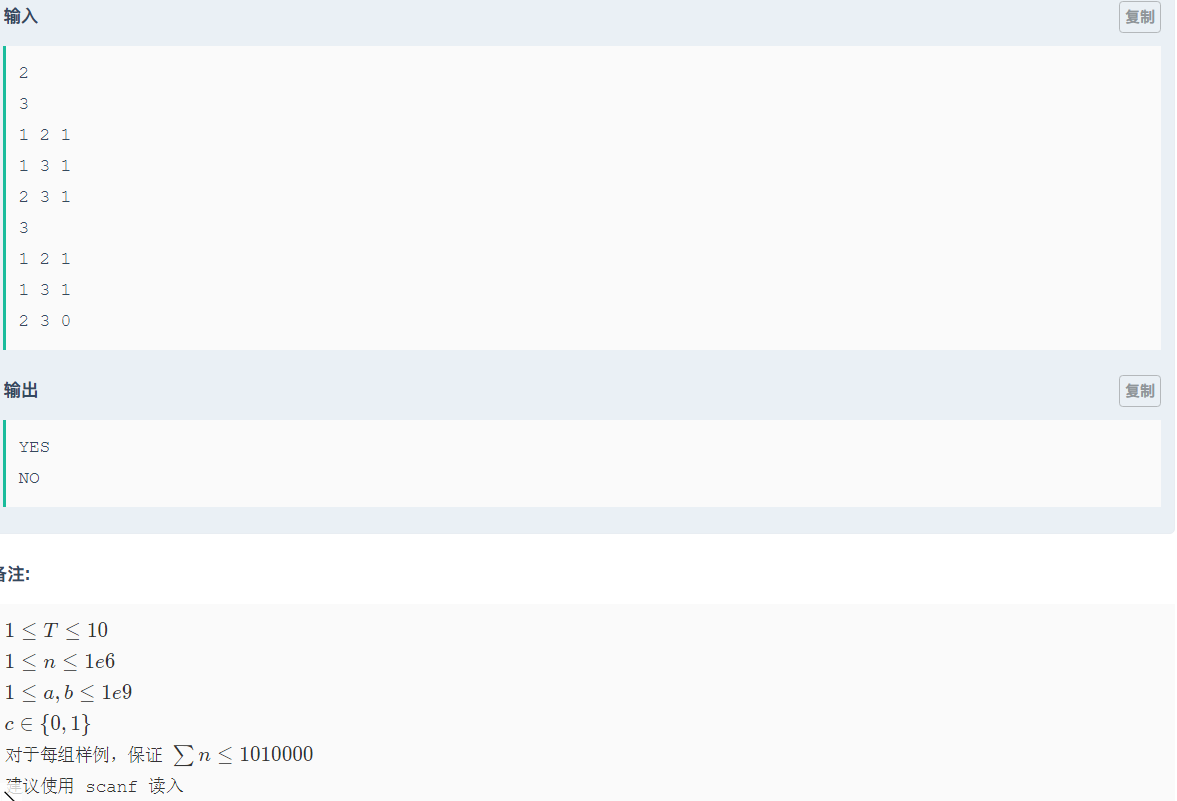地址:https://ac.nowcoder.com/acm/contest/5158/H


解析:1e9,开不了这么大的pr[],所以采取离散化处理。假设输入了 10 12 ,可以把它们存到另一个数组now[]里:i=1,10 i=2,12,这样就可以把数字用坐标来代替,n只有1e6,所以pr[]开到2e6往上就可以了。使用了lower_bound来查找数字的对应位置。unordered_map也可以做,但是我的编译器报错,所以就没这么写,先插个眼吧:
unordered_map<int,int>father;
然后是我的离散化代码:
#include<iostream> #include<cstdio> #include<map> #include<algorithm> using namespace std; typedef long long ll; const int maxn=3e6; ll pr[maxn],a[maxn],b[maxn],c[maxn]; ll tot=1; ll now[maxn]; void init() { for(int i = 1 ; i <= tot ; i++) { pr[i]=i; } } ll find(ll x) { if(x!=pr[x]) return pr[x]=find(pr[x]); return x; } int main() { int t; scanf("%d",&t); while(t--) { int n; scanf("%d",&n); tot=1; for(int i = 1 ; i <= n ; i++) { scanf("%lld%lld%lld",&a[i],&b[i],&c[i]); now[tot++]=a[i]; now[tot++]=b[i]; } sort(now+1,now+tot+1); init(); int ok = 0 ; for(int i = 1 ; i <= n ; i++) { ll x=lower_bound(now+1,now+tot+1,a[i])-now; ll y=lower_bound(now+1,now+tot+1,b[i])-now; ll fa=find(x); ll fb=find(y); if(c[i]==1) { if(fa!=fb) pr[fa]=fb; } else { if(fa==fb) { ok=1;break; } } } if(!ok) cout<<"YES"<<endl; else cout<<"NO"<<endl; } }